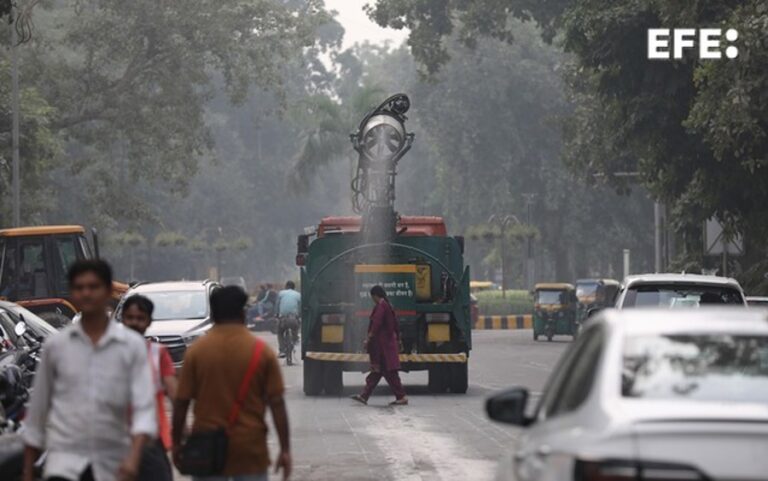
New Delhi uses ‘artificial rain’ for first time to curb pollution
New Delhi, (EFE).
Delhi Environment Minister Manjinder Singh Sirsa has announced that New Delhi will conduct its first trial of ‘artificial rain’ on Tuesday, in an attempt to curb pollution and mitigate the deterioration of air quality during the winter months, according to local media reports.

‘Artificial rain’, also known as ‘cloud seeding’, involves dispersing substances in the clouds in an attempt to change the amount or type of precipitation and has already been used in countries such as the United Arab Emirates and Pakistan.
This will be the first time such a test has been carried out in New Delhi, following several failed attempts in previous years due to unsuitable weather conditions or a lack of official permits.

“The flight will arrive in Delhi once the visibility improves (in Kanpur). The cloud seeding trial will be conducted today,” the minister told PTI.
He added that visibility in Kanpur, a city in northern India, is currently 2,000 metres, and the plane will take off for the test once it reaches 5,000 metres.
Deteriorating air quality in New Delhi is an annual occurrence during the winter months.

Despite a slight improvement after the toxicity peaks reached during the Hindu festival of Diwali, pollution levels in the city are very harmful to health, exacerbated by the massive use of fireworks.
According to the Swiss platform IQAir, the Indian capital remained at the top of the list of the world’s most polluted cities on Tuesday, with an air quality index (AQI) of 192 points.

While this level is lower than the more than 280 points reached in previous weeks, it remains in the “very harmful” category.
The concentration of PM 2.5 particles, which are the most dangerous to health, was 114 micrograms per cubic meter — nearly thirty times higher than the levels recommended by the World Health Organization (WHO) for prolonged exposure.
The second phase of the Graded Response Plan Against Pollution (GRAP) has been in operation in New Delhi since Oct. 19, involving strengthened security and surveillance measures.





